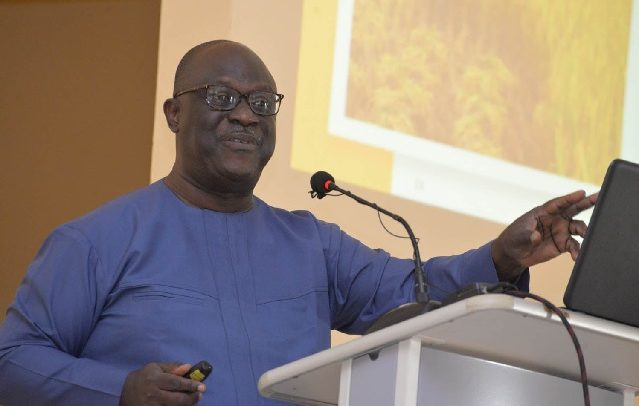Kwesi Korboe
CHIEF EXECUTIVE Officer of Ghana Incentive-Based Risk-Sharing System for Agriculture Lending (GIRSAL), Kwesi Korboe, says financing Ghana’s agriculture sector alone is not enough to grow the sector, even though that is vital.
According to him, a conducive environment for agribusinesses must be created for them to grow.
He was speaking at the launch of the Agriculture Stakeholder Convening Platform, where various stakeholders claimed agriculture was not receiving enough money.
Despite the improvement in credit to the private sector in the past few months, the sector has continued to attract the lowest levels of credit from banks operating in Ghana.
The central bank’s May 2022 Monetary Policy Report shows that at 3.5%, the agriculture, forestry and fishing sectors are the second-lowest recipients of credit to the private sector as of April 2022, a little better than the mining and quarrying sector which received 1.8% of credit from banks.
“There is always a cry that it is so difficult for businesses to access finance, and we hear it every day and that may be the case, but at GIRSAL, we have learnt that finance only works better when the environment is conducive. Finance alone is not the answer. Everything has to be in place, and that is why we are taking this bold step to develop what we call a platform to bring everyone on board.”
“Agribusinesses, just like any other business, have their own risk, firm-level, the value chain level and also external level and so at firm-level governance, business model, sourcing of raw material [are in the mix]. It is the same whether you are producing tomatoes or something else. How do we mitigate these risks? The external shocks we are currently seeing, global disturbances, unfair competition, climate change, which is a major issue, especially for production-related activities, we can’t hide from them. We have to confront it,” he said.
He further advocated a wide-ranging approach to help address challenges confronting the sector.

